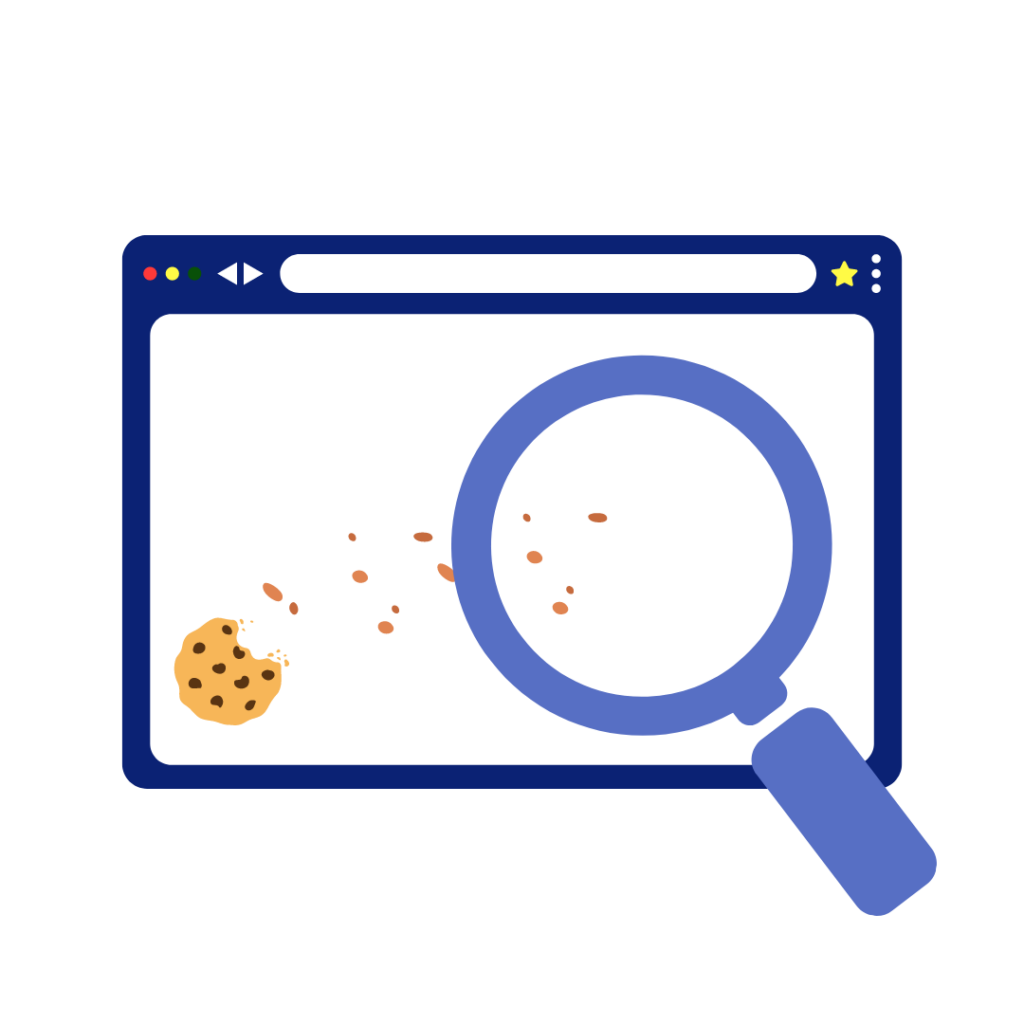You’ve probably received a pop-up once or twice before:
“Would you like to allow cookies?”
There are debates as to if these data-packets are a helpful tools, or a security concern. The answer: a little bit of both.
What are cookies?

Cookies are little text documents sent from your computer and stored on a browser. They’re used for three main things:
- Tracking
- Session Management
- Website Personalization
These things can become useful, and create a more optimized experience for a user. However, they can quickly become troubling.
There are two main types of cookies: first-party and third party. First-party cookies aren’t a huge issue and are often trustworthy, as long as that website hasn’t been breached. Third party is where the cookie begins to crumble.
Third-Party Cookies
Third-party cookies don’t originate on the website you’re browsing. Instead, they originate through advertisements on that website. This allows advertisers to view data such as browser history, log-in info, IP address, and more. Usually, they are used for ad relevance. If a domain finds that you like an ad on one website, they will continue to show relevant ads to that topic on other websites they are advertising on. If you see a spam email, it’s likely that you logged into a website that had third-party cookies, and they got your email address from it.
Supercookies
A supercookie- despite its name- is not really a cookie. Instead, they are an even bigger concern. Not even incognito mode, closing the browser, restarting your system, ad blockers, or VPNs can fully stop supercookies.
Supercookies are put in by ISPs (Internet Service Providers), tracking companies, and technology companies and track users online. Like regular cookies, this information is used for ad targeting and personalization. Unlike them however, you aren’t given the option on websites to enable or disable them.
These data-collecting files can be stored in the cache in some instances, but mainly are stored within the network layer by ISPs. The only way to avoid them is through the usage of a VPN, which while doesn’t fully eliminate them, can make the data they gather a bit harder to track back to you.
How do I stay safe?
First, you can start by figuring out whether or not the website you are using uses First or Third Party cookies. For example, let’s check YouTube.
Right Click, and Select “Inspect”

Now you’ve opened up developer mode, or “inspect elements”.
From here, click “Application” (It could be hidden under the >> dropdown button!)
On the sidebar, you can look at the dropdown of “Cookies”. If there are any other domains listed, then they are third party cookies. In our YouTube example, there are only first party cookies.
However, if we go to SHEIN instead:
Now we can see that they utilize third-party cookies.

To remove cookies on Chrome, go to the top right of your browser and click the three dots. There, you can directly click “Clear Browsing Data”. By erasing your third party cookies, you can minimize the effect of supercookies.
FireFox also claims to be an effective resource against SuperCookies, as they prevent them from talking to each other with their browser. This is done by storing them in their own “cookie jars”.
Another method is using a third party browser extension. One popular choice, Ghosterly, is both an effective ad-blocker, and cookie preventer.
By 2024, Google plans to remove third-party cookies on Chrome. Until then however, it’s always smart to be weary of what websites are using your data- especially when it comes to security breaches! https://haveibeenpwned.com/ is a useful website to make sure that your email hasn’t been compromised in any data leaks. Utilizing a VPN can also help in order to have a more protected browsing experience.

Sources:
What Are Internet Cookies and What Do They Do? | Kapersky
All You Need To Know About Third Party Cookies | TechTarget
What is The Definition Of A Third Party Cookie? | TechTarget
What is The Definition of a Supercookie? | TechTarget
How do I Know if I Have Third Party Cookies? | CookieServe
Mozilla Explains: Cookies and Supercookies | Mozilla
Supercookies explained: What they are and how to protect your privacy | NordVPN

By Cierra Rossi ’27, Writing and Publishing
Cierra Rossi has been passionate about writing since she was young, specializing in creative writing and story-focused pieces.